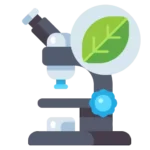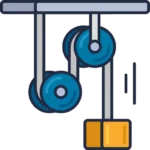Guess paper English Class 11 is up-to-date and the most important questions are given according to Punjab boards. These guess papers will help you to get the highest marks in your papers. Punjab Board guess paper English is relevant to all chapters, and we have tried to include all the necessary questions to help students score more than seventy percent.
11th class English guess paper 2025 is available and you may ask if you need any assistance from our qualified team. English 1st year guess papers are for helping material that may enhance the chances of the students to get more marks in less time.
Guess Paper English Class 11
1st Year English Important Translation Passages
- While she was stacking dishes, she turned abruptly, dried her hands, and took the package from the bottom cabinet-opening it, she set the button unit on the table. She stared at it for a long time before taking the key from its envelope and removing the glass dome. She stared at the button. How ridiculous, she thought all this furor over a meaningless button.
- Abruptly, she began to smash it on the sink edge, pounding it harder and harder, until the wood split. She pulled the sides apart, cutting her fingers without noticing. There were no transistors in the box, no wires or tubes. The box was empty.
- When he’d gone to work. Norma remained at the table, staring into her coffee. I’m going to be late, she thought. She shrugged, what difference did? While she was stacking dishes, she turned abruptly, dried her hands, and took the package from the bottom cabinet-opening it, she set the button unit on the table. She stared at it for a long time before taking the key from its envelope and removing the glass dome. She stared at the button. How ridiculous, she thought all this furor over a meaningless button.
- I didn’t want to go with him. I had just Mushed walking a half mile uphill from my home to his. I had carried a basket of dishes to Mom. There were two dips in the road and I couldn’t drive my car. And I knew how hot it was. It was 97 in the shade. I knew that from January until April my father had gone to eight different doctors. One of the doctors had told him not to walk the length of a city block. He told my father to get a taxi to take him home.
- “Oh, yes,” he said. “Early last spring. I couldn’t climb straight up the steep path. That was when the doctor didn’t give me a week to live. I made a longer easier path so I wouldn’t have to do so much climbing. Then, as I got better,” he explained. “I made another path that was a little steeper. And as I continued to get better, I made steeper paths. That was one way of knowing I was getting better all the time!”
- “When I bought this little farm everybody around here said I’d end up with my family at the country poor farm if I tried to make a living here,” he bragged again. “It took me thirty years to improve these old worn-out acres to make them do this!” “I like these woods, Jess, “my father said, “Remember when we used to come here to hunt for squirrels? Remember when we sat beneath these hickories and the squirrels threw green hickory shells down at us?
- Summer burned the canals dry. Summer moved like a flame upon the meadows. In the empty earth settlement, the painted houses flake and peel. Tuber tires upon which children had swung in back yards hung suspended like stopped clock pendulums in the blazing air.
- The wind blew as if to flake away their identities. At any moment the Martian air might draw his soul from him. as marrow comes from a white bone. He felt submerged in a chemical that could dissolve his intellect and burn away his past. They looked at the Martian hills that time had worn with a crushing pressure of years They saw the old cities, lost in their meadows, lying like children’s delicate bones among the blowing lakes of grass
- The rocket metal cooled the meadow winds. Its lid gave a bulging pop from its clock interior stepped a man, a woman, and three children. The other passengers whirled away across the Marian meadow. Leaving the man alone among his family. The man felt his hair flutter and the tissues of his body drawn tight as if he were standing at the center of a vacuum. His wife, before him, seemed almost to whirl away in smoke. The children, small seeds, might at any instant be sown to all the Martian climes The children looked up at him, as people looked to the sun to tell what time of their life it was. His face was cold
- She was a large woman with a large purse that had everything in it but a hammer and nails. It had a long strap, and she carried it slung across her shoulder. It was about eleven o’clock at night, dark. and she was walking alone when a boy ran up behind her and tried to snatch her purse. The strap broke with a sudden single tug the boy gave it from behind. But the boy’s weight and the weight of the purse combined caused him to lose his balance.
- In another corner of the room behind a screen was a gas plate and an icebox. Mrs. Jones got up and went behind the screen. The woman did not watch the boy to see if he was going to run. now. nor did she watch her purse, which she had left behind her on the daybed. But the boy took a cane to sit on the fat side of the room. away from the purse, where she thought she could easily see him out of the corner of her eye if she wanted to. He did not trust the woman not to trust him. And he did not want to be mistrusted now.
- Sweat popped out on the boy’s face and he began to struggle. Mrs. Jones stopped. jerked him around in front of her, put a half nelson about his neck, and continued to drag him up the street. When she got to her door. She dragged the boy inside. down a hall. and into a large kitchenette – furnished room at the rear of the house. She switched on the light and left the door open. The boy could hear other roomers laughing and talking in the large house. Some of their doors were open too. So, he knew he and the women were not alone.
- The diners discussed the crops and the weather which was favorable for the green things but not for wheat. Suddenly, at the sound of a drum beat in the court everybody rose from the seats except a few ones who still had the food in their hands. After the drumbeat had ceased, the drumbeater called out to the people wo were now attentive and impatiently waiting for him to call out the public announcement.
- After the meal had concluded the Chief of the police appeared on the scene. He inquired, “Is Mr. Hubert here.” Mr. Hubert seated at another end of the table replied. “Here I am.” The accompany me to the mayor’s office, the mayor would like to talk to you. “Mr. Hubert surprised and disturbed, followed the Police officer. The mayor, a stout serious man, was waiting for Hubert.”
- There was no use of Mr. Hubert’s protesting. for nobody believed him. Mr. Mariana repeatedly maintained that Hubert has picked up the pocket book. For an hour both men abused each other. Then at his own request, Mr. Hubert was searched. Nothing was found on him. Finally, the Mayor discharged Hubert with warning that he would consult the public prosecutor and ask for further orders.
- People stated to tell the story of the sitting to amuse them and told it in a manner of soldier who had been on a campaign and told about his battles. Hubert’s mind touched to the depth began to weaken day by day towards the end of the month he took to his bed. He died in the first week of the following month. In the delirium of his struggle, he kept claiming his innocence.
- There was young fellow, ‘said Jorkens,’ to whom his parents probably used to say the very things that we have been saying now: and very likely he, as many young fellows do. May have wanted to prove them wrong. I don’t know: it was a long time ago. But, whatever his motive was, he hit on a most extraordinary ambition, and stuck to it. It was nothing less than to be appointed Court acrobat.
- One he raised to touch the lowest of the swings that no was hung from the ceiling. But again, the applause broke out, assuring him that no actual activity was expected of him. And so; having made his bows, he was les to a seat, his life’s ambition achieved. It must have taken him more than sixty years to do it, since first he came by that strange ambition of his. But he did it. Not many sticks to a thing for so long.
- I will not describe it to you because everything there, the uniforms and the ladies’ brilliant dresses was utterly put in the shade the moment when the doors opened with a flood of golden light, and the old man in his brilliant uniform appeared between them for the crowning of his life’s work. His white hair and the red uniform of the Court acrobat showed each other off the perfection. and his thin figure worn with age was made all the more melancholier by the tight-fitting uniform.
- I grasped the child’s head with my left hand tried to get the wooden tongue depressor between her teeth. She fought with clenched teeth, desperately! But now I also had grown furious at a child. I tried to hold myself down but I couldn’t. I know how to expose a throat for inspection. And I did my best When finally. I got the wooden spatula behind the last teeth and just the point of it into the mouth cavity. she opened up for an instant.
- The child was fairly eating me up with her cold, steady eyes, and no expression on her face whatever. She did not move and seemed, inwardly, quiet, an unusually attractive little thing, and as strong as a heifer in appearance. But her face was flushed. she was breathing rapidly. and I realized that she had a high fever. She had magnificent blonde hair, in profusion. One of those pictures children often reproduced in advertising leaflets and the photogravure sections of the Sunday papers.
- In the final unreasoning assault, I overpowered the child’s neck and jaws I forced the heavy silver spoon back of her teeth and tonsils covered with membrane. She had fought valiantly to keep me from knowing her secret. She had been hiding that sore throat for three days at least and lying to her parents in order to escape just such an outcome as this.
- “The foundation of oppression was small in the world”, said the king. “Whoever enlarged it, so that it reached its present magnitude, is at fault. If the king eats one apple from the garden of a subject, his slaves will pull down the whole tree. For five eggs, which the king allows to be taken by force, the people belonging to his army will put a thousand fowls on the spit. A tyrant does not remain in the world. but the curse on him abides forever!
- A son of a farmer was discovered to possess the qualities mentioned by doctors. The king summoned the father and mother of the boy, whose consent he got by giving them a huge amount of wealth. The Qazi issued a decree to shed the blood of a person for the health of the king. The boy was brought to the altar and the executioner was directed to slaughter the boy. When all was ready the boy looked toward the sky and smiled.
- If they fail, they are expected to bring the case before the Qazi to seek justice. But in the present case, the parents have agreed to get my blood shed for the trash of this world. The Qazi has issued a decree to kill me. The king thinks he will recover his health only through my slaying and I see no other refuge besides God almighty. To whom shall I complain against your brutality, if I am to seek justice from your hand?
- But in the present case, the parents have agreed to get my blood shed for the trash of this world. The Qazi has issued a decree to kill me. The king thinks he will recover his health only through my slaying and I see no other refuge besides God almighty. To whom shall I complain against your brutality? If I am to seek justice from your hand?
- A king fell seriously ill and all hopes of his recovery vanished. The more the disease was cured the more it became painful. At last, the physicians agreed that this disease cannot be cured except by means of the bile of a person endued with certain qualities. Orders were issued to search for an individual of this kind. A son of a farmer was discovered to possess the qualities mentioned by doctors. The king summoned the father and mother of the boy, whose consent he got by giving them a huge amount of wealth. The Qazi issued a decree to shed the blood of a person for the health of the king. The boy was brought to the altar and the executioner was directed to slaughter the boy. When all was ready the boy looked toward the sky and smiled.
- An old woman, whose throat was swollen to a frightful size, exclaimed: “O my son if you would only cure my goiter, I would bless you for evermore!” “Certainly.” answered the man; “here, bring me a blanket and a good-sized mallet.” As soon as they were brought, he tied up the woman’s throat and struck the swollen part with so much force that the poor old creature instantly expired.
- When he had overtaken them, her cried; “what foolish men you must be! I met an old woman who suffered from goiter just like your camel: and I tied a blanket round her neck and struck her with a mallet, but instead of recovering like your camel, she died and instead of getting a fee I was compelled to dig her grave!”
- “It is not we who are stupid.” answered the camel-men, “but you. We are not stupid at all. These animals are camels of prodigious size and strength. How was a feeble old woman to stand the blow of a mallet?”
- At once Richard shouted at the cook-boy. Old Stephen yelled at the house-boy. The cook-boy ran to beat the old ploughshare hanging from a tree branch, which was used to summon store to collect tin cans. any old bit of metal. The farm was tinging with the clamor of the gong: and they could see the laborers comes pouring out of the compound, pointing at the hills and shouting excitedly.
- Margaret was wondering what she could do to help. She did not know Then up came old Stephen from the lands. “We’re finished, Margaret, finished! Those beggars can eat every leaf and blade off the farm in half an hour! And it is only early afternoon if we can make enough smoke. make enough noise till the sun goes down
- “For the Lord’s sake, “said Margaret angrily, still half-crying, “what s here is bad enough, isn’t it? For although the evening air was no longer black and thick, but a clear blue. with a pattern of insects whizzing this way and what across it, everything else – trees, buildings, bushes. Earth – was gone under the moving brown masses.
- I am not unmindful that some of you have come here out of great trials and tribulations Some of you have come fresh from narrow jail cells. Some of you have come from the areas where your quest for freedom left your battered by the storms of persecution and staggered by the winds of police brutality. You have been the veterans of creative suffering. Continue to work with the faith that unearned suffering is redemptive
- With this faith, we will be hew out of the mountain of despair, a stone of hope With this faith we will be able to transform the jangling discords of our nation into a beautiful symphony of brotherhood. With this faith we will be able to work together, to pray together, to struggle together, to go to jail together. to stand up for freedom together, knowing that we will be free one day.
- I have a dream that one day every valley shall be exalted, every hill and mountain shall be made low, the rough placed will be made plains, and the crooked places will be made straight, and the glory of the Lord shall be revealed, and all flesh shall see it together. This is our hope. This is the faith with which I return to the South. With this faith, we will be able to hew out of the mountain of despite, a stone of hope. With this faith, we will be able to transform the jangling discords of our nation into a beautiful symphony of brotherhood.
- This is our hope. This is the faith with which I return to the South. With this faith, we will be able to hew out of the mountain of despair a stone of hope. With this faith, we will be hew out of the mountain of despair, a stone of hope. With this faith, we will be able to transform the jangling discords of our nation into a beautiful symphony of brotherhood. With this faith we will be able to work together, to pray together, to struggle together, to go to jail together. to stand up for freedom together. knowing that we will be free one day.
- The door opened and Jim stepped in. He looked very thin and he was not smiling. Poor fellow, he was only twenty-two and with a family to take care of! He needed a new coat and he had nothing to cover his cold hands
- Jim stopped inside the door. He was as quiet as a hunting dog when it is neat a bird. His eyes looked strangely at Della, and understand. It filled her with fear. It was not anger, surprise, or anything she had been ready for. He simply looked at her with a strange expression on his face.
- The Magi, as you know, were wise men – wonderfully wise men – who brought gifts to the newborn Christ-child. They were the first to give Christmas gifts. Being wise, their gifts were doubtlessly wise ones. And here I have told you the story of two children who were not wise. Each sold the most valuable thing he owned in order to buy a gift.
- Before his marriage, Maulvi Abul Barkat, alias Abul used to live in comfort, even pomp. On his head, he wore a light brown turban known as Mashadi lungi, because it originally came from Mashad in Iran. The glided tip of his cap used to shine brightly above the turban. He always earned a walking stick, a sort of scepter with decorative bands of brass and gilt. For his hair, he used fragrant oil. Its sweet pungent smell lingered in the village lanes whenever he walked through them,
- After the ceremonies were over, Mehmn was made to sit in a palanquin: Beautifully decorated, it was covered with a large silken cloth so that the bridge could go to the bridegroom’s house in strict purdah. As two sturdy villagers earned it away, Maulvi Abul walked a few steps with it. He must have cried silently for his eyes and nose were red and he looked pale. At the same time, he looked at peace.
- He was the only son of a Haafiz. After the death of his father, Khudayar tried to follow his father’s footsteps. When he was about 16, he went away to the city, leaving his old mother behind. Later they learned that he had worked in the house of a head clerk, after which he had managed to open a small shop on a footpath where he began selling cut pieces. After saving some money and gaining experience in the business. he returned to the village.
- When the couple had walked some hundred yards ahead of him. he hurriedly started after them Hardly had he reached halfway across the road when a truck full of bricks came from behind like a gust of wind and crushing him down speeded off towards McLeod Road. The driver of the truck had heard a shriek and had actually for a moment slowed down, but realizing that something serious had happened. had taken advantage of the darkness and had sped away into the night.
- The young man seated on the cement bench was watching with interest the people passing on the pavement before him. Most of them were wearing overcoats which were of every kind from the astrakhan to the rough military khaki such as are found in large bundles at the secondhand clothes shops.
- The shoes and the socks now came off. The shoes were old but brightly polished. As to the socks. in color and pattern, the one was quite different from the other. There were holes at the heels and where the flesh showed through the holes it was grimed with dirt He was by now dead and his lifeless body lay on the white marble slab.
- “It is the first Christmas number that starts me off,” I told him: “Those beautiful pictures – the sweet child looking so pretty in her furs, giving Bovril with her own dear little hands to the shivering street arab; the good old red-faced squire shoveling out plum pudding to the crowd of grateful villagers. It makes me yearn to borrow a collecting box and go round doing good myself.”
- It was more for the sake of talking of him than anything else that I kept up with him. I did not really doubt his care and conscientiousness, but it is always pleasant to chat about one’s self. “My five shillings subscription to the Daily Telegraph’s Sixpenny Fund for the unemployed – got that down all tight?” I asked him. “Yes”.
- I also reminded him of the four balcony seats I had taken for the monster show at his majesty’s in aid of the fund for the Destitute British in Johannesburg. Not all the celebrated actors and actresses announced on the posters had appeared, but all had sent letters full of kindly wishes and the others – all the celebrities one had never heard of – had turned up to a man.
1st Year English Important Question Answers
Important Questions from Short Stories
Q.1: Why did Norma consider the tone and attitude of Mr. Steward Offensive?
Ans: Norma posed to be busy. He was hurt by her cold attitude. So, his tone became a bit offensive which Norma felt.
Q.2: Why did Arthur disagree with his wife?
Ans: Arthur considered it immoral. He considered it a murder. So he disagreed with her.
Q.3: Why did Norma persuade her husband to agree with her?
Ans: Norma wanted to get money to fulfill her wishes.
Q.4: What was the reason Norma gave to her husband to accept the offer?
Ans: They would make a trip to Europe and build a little cottage on this island. They would have a nicer apartment, nicer furniture, nicer clothes, and a car.
Q.5: What was the message Norma received on pushing the button?
Ans: Someone told her that Arthur was pushed in front of the train.
Q.6: Why did the old man not follow the advice of the doctor?
Ans: He wanted to work, to smell the rich loam, to dig it, and to sift it. He wanted to taste yams, tomatoes, and potatoes grown in a fresh land.
Q.7: What had the doctors told the old man?
Ans: The doctors had asked him to live with his family as long as he could. They told him not to do anything.
Q.8: Why did the old man take the steep path?
Ans: He took the steep path up the hill. He wanted to show his son that he was still energetic and healthy.
Q.9: Why had the old man planted his secret garden?
Ans: He just wanted to refresh his old memories. Moreover, he believed that things grown in a new land had better flavor.
Q.10: Why did Harry want to go back to Earth?
Ans: Harry thought that they would change into Martians if they lived there. Moreover, he loved the Earth and all its things.
Q.11: What was the condition of the Bittering family on hearing the news of war on Earth?
Ans: They were extremely shocked and confused Laura began to weep.
Q.12: How much dangerous can a Martain virus be?
Ans: It can be very dangerous. It can make them thin and slender. It can change even their mind.
Q.13: What happened to the boy when he tried to snatch the purse?
Ans: The boy lost his balance. He fell on his back on the sidewalk. His legs flew up.
Q.14: What was the reaction of the woman?
Ans: She simply turned round and kicked the boy. Then, she picked him up by the front of his shirt and shook him until his teeth rattled.
Q.15: Why did the woman ask the boy to wash his face?
Ans: The face of the boy was dirty.
Q.16: What was the nature of the woman’s job?
Ans: She worked in a hotel beauty shop.
Q.17: Why did Manana accuse the old Hubert of picking up the lost pocketbook?
Ans: Mananana accused the old man because he had seen him picking something from the ground.
Q.18: What made Hubert shameful?
Ans: People considered the old man to be a liar. This made him shameful.
Q.19: Why did the people make fun of his innocence?
Ans: People neither respected him nor believed him to be innocent. They rather began to make fun of his innocence to amuse them.
Q.20: What was the subject discussed at the club?
Ans: The discussion was about opportunity and determination.
Q.21: What did Terbut think of Jorken’s argument?
Ans: Jorkens said that only determination was needed for success. Terbut did not agree with him. He said that opportunity was more important than determination for success.
Q.22: How did George persuade his people to make his country strong?
Ans: He asked them to create a post of court acrobat. It would raise the glory of their country and its throne. It would strengthen their soldiers. They would win the rights of the nation.
Q.23: What was the viewpoint of the parents of Gorgios?
Ans: They thought that only determination could do nothing. One should also have an opportunity for success.
Q.24: What was the condition of the parents on the arrival of the doctor?
Ans: They looked nervous. They looked at the doctor distrustfully.
Q.25: What was the behavior of the child with the doctor?
Ans: She looked at him with her cold steady eyes. She behaved rudely with him. Even she fought with him to stop him from seeing her throat.
Q.26: Why did the doctor call the sick girl by her first name?
Ans: The doctor called the girl by her first name as a bit of gentle coaxing. In this way, he wanted to show his kindness and friendliness.
Q.27: What was the remedy suggested by the physicians for the disease of the king?
Ans: They suggested that the disease of the king could be cured by means of the bile of a person having certain qualities.
Q.28: Why did the boy look to the sky and smile?
Ans: The boy said that a boy looks to the love of his parents and justice from the Qazi. But in his case, both had agreed to his murder. Therefore, he looked to God to seek justice.
Q.29: What should be the role of a Qazi?
Ans: He should be just and honest in his decisions.
Q.30: What is a clump of trees?
Ans: A clump of trees is a group of trees growing close together. It may mean an oasis.
Q.31: What did the quack do in the next village?
Ans: He tied a blanket around her throat and hit it hard with a mallet.
Q.32: What was the punishment inflicted upon the quack by the villagers?
Ans: They punished him by forcing him to dig the grave of the woman. After this, they beat him hard and let him go.
Q.33: Why did the quack come back to the camel-men?
Ans: The quack came back to the camel-men to learn the right way to cure goiter.
Q.34: Why did the farmers throw WM leaves on fire?
Ans: The farmers were throwing wet leaves onto the fires to make the smoke acrid and black.
Q.35: What was the desire of every farmer?
Ans: Every farmer desired that the locusts should overlook his farm and go on to the next.
Q.36: Why are the locusts compared with bad weather?
Ans: Margaret thought that the locusts would be like a bad weather, always coming up. As the weather can appear at any moment, the locusts can tune-up at any moment.
Q.37: What was the cause of Negroes’ discontentment?
Ans: The Negroes were considered to be inferior to the white man. They were made slaves. They did not have equal rights. These things created discontentment in them.
Q.38: What are the qualities of the veterans of creative suffering?
Ans: They are brave men. They think that the unearned suffering is redemptive. They fight for their rights and do not bow down to cruelty.
Q.39: What is the dream of Martin Luther King Jr.?
Ans: They would live like brothers. They would judge a man by his qualities and not by his color.
Q.40: What should be the criterion of judgment for a person?
Ans: A man should be judged by the qualities of his character and not by the color of his skin.
Q.41: Why did Jim sell the gold watch?
Ans: He sold his gold watch to get money to buy a gift for his wife at Christmas.
Q.42: Why did she feel sad about losing her hair?
Ans: She was sad about losing them. She feared that Jim might hate her without her hair.
Q.43: What was the wisdom in selling the most valuable things?
Ans: They wisely sold their valuable things to buy gifts for each other.
Q.44: What was his turban known as and where from did it originally come?
Ans: His turban was known as ‘Mashadi Lungi’ Originally, it came from Mashad in Iran.
Q.45: Describe Maulvi’s appearance.
Ans: Maulvi wore a turban on his head. He wore silver rings on his fingers. He always carried a stick with him. He had bulging eyes. He used fragrant oil for hair.
Q.46: How much did the Maulvi collect on every Eid?
Ans: He collected 150 to 200 rupees every Eid.
Q.47: What was his appearance?
Ans: He had sleek shiny hair, sideburns, and thin mustaches. He had an opened rose in the buttonhole of his overcoat, a silk scarf around his neck, a flat hat on his head, and a stick in his hand.
Q.48: What were the people wearing who came to the Mall?
Ans: Most of the people were wearing overcoats. The coats were of many kinds from astrakhan to the rough military khaki color.
Q.49: Why did the driver of the truck speed away after the accident?
Ans: The driver heard the shake. He slowed down for a moment. But realizing that something serious had happened, he sped away into the night.
Q.50: At which point of the journey in his dream did the author hear the troubling sound of wings?
Ans: He heard the troubling sound of his wings when he could see nothing on the Earth.
Q.51: What does the author like about Christmas?
Ans: The writer likes Christmas as it makes people goal, generous and virtuous. They do a lot of good deeds during the period.
Q.52: Why noble deeds are always a great joy for the author?
Ans: Noble deeds give spiritual happiness. They inspire others to do good deeds. They benefit human. They please God and bring satisfaction to human soul. Therefore the writer enjoys doing such deeds.
Important Questions from Plays
Q.1: Why couldn’t the girl describe the killer?
Ans: She could not describe the killer because in the dark, she had not seen his face clearly.
Q.2: What were the circumstances that forced her to leave her car?
Ans: She left the car because it had run out of gas.
Q.3: What was the condition of the weather?
Ans: It was stormy weather with thunder and lightning in the sky.
Q.4: What is her impression of the second man?
Ans: She thought that the second man was the real killer. Therefore, she kept herself away from the second man.
Q.5: Why didn’t she accompany the second man?
Ans: She did not accompany him because she thought that the second man was the killer.
Q.6: What are the factors that played their role in saving the girl?
Ans: Flashlight, woods, the second man, and the dog are the main factors that played their role in saving the girl.
Q.7: How does Kreton prove his extraordinary powers?
Ans: He has magical powers that do not allow someone to touch him or his ship. He can read people’s minds. His ship has no instrument and he says that he is immortal.
Q.8: What is the purpose of the visit of Kreton?
Ans: Earth is Kreton’s subject of interest. He has all the information about it and he wants to take hold of the planet.
Q.9: What is the role of General Powers in the play?
Ans: He is a member of the National Guard. He is fearful of Kreton and considers him a threat to his country. But Kreton and other people do not like his rude behavior.
Q.10: What is the theme of the study of Kreton?
Ans: Knowing about the people of Earth and their civilization is the theme of the study of Kreton.
Q.11: How does Kreton impress General Powers?
Ans: Kreton reads his mind and tells him that he is thinking about his promotion. And when the General’s troops go to destroy the ship, he draws an invisible wall around his ship. These tricks impressed Power well.
Q.12: How much damaging is violence in life?
Ans: Violence destroys the bond of love and life. It brings dejection and sorrow to society. It makes people fearful and stops them from enjoying the happy moments of their life.
Q.13: What type of life do you foresee in the year 5000?
Ans: If the scientific progress continues with the current pace we would be more advanced as that of Kreton’s people. We would read minds and control the space.
Q.14: How much impressive were the morals of Kreton?
Ans: He was not emotional and took every decision with patience. He was tolerant, loving, and courteous.
Q.15: What is Harry’s philosophy?
Ans: His philosophy is “the take-it-easy way”.
Q.16: How much does Harry charge for a haircut?
Ans: He charges one dollar for a haircut but he often takes half or a quarter.
Q.17: What has happened to Clay’s father?
Ans: Clay’s father is a poor man and he cannot fulfill the basic needs of his children. His wife always quarrels with him for this reason. Therefore, he has left the house and has gone to Salinas to earn money.
Q.18: What has Clay put in the local paper?
Ans: In his ad, Clay requests his father to return home. His family is missing him a lot.
Q.19: What does Clark give Harry? For what purpose?
Ans: Clark gives Harry thirty dollars to give them to Clay so that Clay could give the money to his
mother.
Q.20: What does Clay believe in the oyster? How much is it worth?
Ans: Clay believes that there is a pearl in the oyster worth two to three hundred dollars.
Q.21: What kind of judge is Judge Applegarth?
Ans: He is not a judge of any court. Once he judged the dogs at the county fair that gave him the name of Judge Applegarth.
Q.22: How does Gharry describe the inhabitants of O.K.-by-the-sea?
Ans: Harry says that poor families live in the town. Every family has a garden and children They do not have jobs and earn their living mostly by selling vegetables and eggs. Those who get a job can work only two months. A few get a pension.
Q.23: What kind of gadget does the writer describe?
Ans: He describes the gadget that is found in New York. He says that it is like a safety razor and with its help anyone can have his haircut.
Q.24: Who buys the oyster? How much does he pay?
Ans: The writer buys the oyster for three hundred dollars.
Q.25: Does the writer open the oyster? Why not?
Ans: He does not open the oyster. He believes that the pearl is growing. But the fact is that he buys the oyster only to help the poor family. He knows that there is no pearl in the oyster but the whole story is itself a pearl.
Important Questions from Poems
Q.1: How a rainy day can be enjoyed?
Ans: A rainy day is a lovely event of nature. Man can enjoy the falling rain. In summer, he can enjoy the cool raindrops. After the rain, he can enjoy the fresh atmosphere. He can go on a picnic either with his family or friends. He can enjoy playing or watching a match.
Q.2: Which fruit is mentioned in the poem?
Ans: The fruit mentioned in the poem is “Cherry”.
Q.3: What kind of feelings does the poet create in the minds of the readers?
Ans: The poet gives us the lesson of courage and valor. He urges us to be ready to have any adventure. We should not be afraid of the troubles of the world. The fears are for the cowards only.
Q.4: What are the feelings of the poet standing in the dark?
Ans: The poet is sad and gloomy. He is standing in the dark street. He is pondering over the hard realities of life.
Q.5: Why has the poet used ‘cannonballs’ to describe the fruits?
Ans: He takes no interest in the charms of life. Even the glowing fruits look like cannonballs to him
Q.6: What kind of a picture of the Karachi slums do we get after the reading poem?
Ans: The heaps of garbage are lying here and there. The pieces of broken glasses are lying there
Q.7: What kind of feelings does the poem create in the reader’s mind?
Ans: The poem teaches that nothing is immortal. Everything vanishes under the crushing pressure of time. It teaches that we should not be proud of our heroic deeds.
Q.8: What did the traveler see in the desert?
Ans: The poet saw a statue, Its vast legs were standing in the desert.
Q.9: What does the sparrow hold in her break?
Ans: She holds a grain of millet.
Q.10: Which parts of children’s bodies were involved while eating fruit?
Ans: Their mouths, fingers, cheeks, nose, and chins were involved while eating fruit.
Q.11: How many young ones are to be fed?
Ans: Ten young ones are to be fed.
Q.13: Why has the poet given his poem the title “Leisure”? OR Justify the little of the poem, “Leisure”.
Ans: Life is full of care. A man should have spare time to see the beauty spreading around. Leisure can make our life enjoyable. That is why the poet has given his poem the title.
Q.14: Who was Abraham?
Ans: He was the prophet of Allah. He was thrown into the fire for preaching the message of Allah. But Allah saved him there
Q.15: What is worse than slavery?
Ans: To have no faith is worse than slavery.
Q.16: Who cannot compete with the civilization of Makkah?
Ans: As the people of Europe do not have any Makkah, they cannot be united. Therefore, they cannot compete with the civilization of Makkah.
Q.17: What has made the efforts of the Muslims fruitless?
Ans: Muslims do not love God. They do not follow Allah’s orders. They have lost their warm and spiritual feelings. Therefore. their efforts remain fruitless.
Q.18: Why did the people of Japan look powerless and helpless?
Ans: Atom bombs were dropped on the people of Japan. Everything was destroyed. All the beautiful things and eatables were smashed. Thousands of men died in no time. Those who survived were left to cry and wail. They were wounded. burnt. afraid, powerless, and helpless. None could share their moans and lessen their groans.
Q.19: Under what circumstances the victims of atom bombs have to pass through?
Ans: Atom bombs hit Japan The people were in terrible condition. They could do nothing but weep and wail. They were wounded. burnt. afraid. powerless and helpless. There was none to help them.
Q.20: What is the moral lesson of the poem?
Ans: The poem teaches that human rights should not be violated. No nation has got right to crush others to satisfy its wild and savage passions
Q.21: When does a person remember God?
Ans. Usually, a man remembers God in a crisis. He remembers Him when he sees someone dying. He requests Him to help him when he is helpless.
Q.22: What is the effect of the death scene?
Ans: Usually a death scene is pathetic. It arouses the feelings of grief.
Q.23: Why does a person feel helpless on the death of a friend?
Ans: Death is a hard fact. This is the final end of life. When a person sees a dear one dies, he feels sad and helpless.
Q.24: Why did Mansur mount the gallows?
Ans: Allah blessed Mansoor. His heart began to glow with Divine light. He forgot himself. He easily mounted the gallows to please Allah.
Q.25: How many attributes of God are mentioned in the poem?
Ans: Three attributes of God are mentioned in the poem. They are that God is the “Knowing” the “Seeing” and the “Hearing”.
Q.26: What makes one scare of sinning?
Ans: God is all ‘Seeing. He sees everyone all the time. This stops everyone from sinning.
Q.27: What are the effects of the attributes of God?
Ans: God’s attributes urge us to do good deeds or stop us from evil deeds.
Q.28: Mention three more attributes of God.
Ans: The Gracious, the Merciful, the Forgive.
Q.29: How do these attributes help in refining the character of a person?
Ans: God’s attributes urge us to do good deeds or stop us from evil deeds.
Q.30: What do you understand when the poet says, “I am the shadow that follows a child”?
Ans: A child is usually free, playful, and lively. He behaves like a king. He does not feel any worry. He always enjoys pure pleasure. The shadow here stands for an image. The line suggests the poet’s pleasure.
Q.31: How can the crust of the snow glitter?
Ans: The beams of light fall upon the crust of snow They reflect and the snow beings to glitter. The glittering rays of sunshine on the white surface of the snow look very lovely and gorgeous.
Q.32: What is the dream of the poet?
Ans: When the poet says that he is the dream of all beautiful things, he presents himself to be a lover of all lovely and charming things of nature.
Q.33: What is the effect of man’s good relation with the earth and the lords?
Ans: By having good relations mh the earth and the lords of the earth. man becomes happy and delighted. His life becomes beautiful and fruitful.
Q.34: What are the things that keep a person alive?
Ans: A person’s good relationship with the earth. its lords and its beautiful and fruitful things keep him alive and happy.
Q.35: Why does W. H. Davies hope to have a lovely sight after rain?
Ans: The sun comes out and the rain stops. The sunlight fills everything with brightness. The sight after the rain is very lovely. He will welcome the sunlight with full joy.
Q.36: What do sheep-dogs do at the arrival of the night mail?
Ans The sheep-dogs do nothing at the arrival of the train. They continue to take rest on their paws.
Q.36: Why does poet wish for a longer life?
Ans: The poet wishes to have long life so that he may be able to enjoy more springs in his life.
Q.37: What do you feel after reading the poem “O Where are you Going”?
Ans: We feel excited and thrilled. We get ready to accept any challenge with courage We become courageous and brave.
Q.38: Explain the title significance of the poem “o where are you going”?
Ans: The title of the poem signifies a hidden warning. Some person wants to achieve some goal and someone is trying to stop us.
Q.39: Which quality of the Sindhi woman appeals to (impress) the poet?
Ans: She is walking gracefully. There is no ripple in her walk. She is walking with her head erect.
Q.40: What is the moral of the poem ‘Times’? OR What importance of time has been pointed out by the poet in “Time”?
Ans: In this poem, the poet says that everything should be done in time. We are born and die at a fixed time. The crops are grown and cut at the proper time God has created this universe in a great order.
Q.41: What is the theme/moral/message of the poem”Ozymandias”?
Ans: The poet suggests that death is a great leveler. It puts an end to all types of honour, glory, and pride. All feelings of superiority in man are only an illusion. A man should live in a humble manner. He should become a humble servant of Allah.
Q.42: What is the problem of the mother sparrow?
Ans: The mother sparrow has only one grain of food. All her young ones are hungry. She could not decide whom she should feed and whom she should solace.
Q.43: Why does the poet call modern men as hollow men?
Ans: Modern men are hollow men. They lack true knowledge and wisdom. They follow each other blindly. They do not have proper purposes and plans.
Q.44: What is the main central idea/theme of the poem “Leisure”?
Ans. The main idea of the poem is that modern civilization has deprived man of two things. First, it has deprived him of freedom and secondly, it has made him greedy He has no time to enjoy the beauty of nature.
Q.46: Point out the two factors which according to Allamalqbal are causes of the downfalls of the Muslims.
Ans. First, the Muslims are not united. They have fallen prey to conflicts. Second, they have lost mental peace and spiritual passion. Their feelings are skin-deep.
Q.47: What are the effects of the attributes/qualities of God?
Ans. The effects of God’s attributes or qualities are very positive. They make us an according to the meaning of these qualities. Then we do good deeds. We try to live nobly.
Q.48: What are the things that keep a person alive?
Ans. Everything that is beautiful and fruitful keeps man alive.
Q.49: How is a man of words and not of deeds like?
Ans. In this poem, the poet highlights the value of life of action. He says that an active life gives us joy and happiness It is rewarding An inactive life is a worthless and useless life. It is like the garden which is full of weeds and snow.
Q.50: What is the moral lesson of the poem?
Ans. The moral lesson is that we should not accept any view about life without any proof. We should be ready to change our ideas about life. Our ideas should be flexible.
Guess paper English Class 11 – Important Punctuation Paragraphs
1. mr steward looked embarrassed i m afraid i m not at liberty to tell you that he said however i assure you the organization is of international scope
Ans. Mr. Steward looked embarrassed. “I’m afraid I’m not at liberty to tell you that.”. he said. However. I assure you, the organization is of international scope”.
2. now youre coming to something son he said as he pushed down the top wire so that he could cross the fence this is something i want you to see
Ans. “Now, you’re coming to something. son.” he said as he pushed down the top wire so he could cross the fence. “This is something I want you to seer
3. the towns were empty but we found native life in the hills sir dark people, yellow eyes martians very friendly we talked a bit not much they learned English fast
Ans. “The town’s empty, but we found the native life in the hills. sir Dark people Yellow eyes The Martians Very friendly. We talked a bit. not much. They learn English fast
4. well you didn’t have to snatch my pocketbook to get some suede shoes said Mrs. Luella Bates Washington Jones you could have asked me
Ans. “Well, you didn’t have to snatch my pocketbook to get some suede shoes”. said Mrs. Luella Bates Washington Jones. “You could have asked me”.
5. I was seen with the pocketbook who saw me mr manana the harness man saw you pick up the pocketbook
Ans. “I was seen with the pocketbook? Who saw me “Mr. Manana, the harness man saw you pick up the pocketbook”.
6. life is like a race Jorkens went on in which they tire after a while and sit down or get interested in something else instead the man who keeps on wins the race
Ans. ‘Life is like a race.’ Jorkens went on, ‘in which they tire after a while and sit down. or get interested in something else instead. The man who keeps on wins the race.’
7. does your throat hurt you added the mother and the child but the little girl’s expression didn’t change nor did she move her eyes from my face
Ans. “Does your throat hurt you?” added the mother to the child. But the little girl’s expression didn’t change nor did she move her eyes from my face
8. if they fail they are expected to bring the case before the qazi to seek justice but in the present case the parents have agreed to get my bloodshed for the trash of this world
Ans. “If they fail. they are expected to bring the case before the Qazi to seek justice. But in the present case, the parents have agreed to get my blood shed for the trash of this world”.
9. do you not perceive answered the camel man I wished to show you that what is good for camels is not therefore good for poor old men and women
Ans. ‘Do you not perceive answered the camel-man. ‘I wished to show you that what is good for camels is not good for poor old men and women.
10. all the crops finished nothing left he said but the gongs were still beating the men still shouting and Margaret asked why do you go on with it then.
Ans “All the crops hnished Nothing left,’ he said. But the gongs were still beating, the men still shouting, and Margaret asked: “Why do you go on with it? then?”
11. i have a dream that one day this nation will rise up and live out the true meaning of its creed we hold these truths to be self-evident that all men are created equal
Ans. I have a dream that one day this nation will wake up and live out the true meaning of its creed: “We hold these truths to be self-evident: that all men are created equal.”
12. i want you to understand me Dell he said nothing like a haircut could make me careless for you but if you open that you may know what I felt when I came in
Ans. “I want you to understand me, Dell,” he said. “Nothing like a haircut could make me careless for you. But if you’ll open that. you may know what I felt when I came in.”
Important Pair of Words
Accede Exceed Concede, Accept Except, Alter Altar, Aural Oral, Access Excess, Adapt Adopt Adept, Allusion Illusion, Baron Barren, Ballet Ballot, Born Borne, Bail Bale, Bridal Bridle, Cast Caste Cost, Complement Compliment, Cue Queue, Cannon Canon, Cite Sight Site, Dual Duel, Dose Doze, Fowl Foul, Fare Fear, Further Farther, Feet Feat Fit, Gate Gait, Gaol Goal, Hail Hale, Human Humane, Hew Hue, Idol, Idle, Lose Loss Loose, Lesson Lessen, Miner Minor, Moral Morale, Marry Merry, Principal Principle, Popular Populous, Pray Prey, Pour Pore, Rain Rein Reign, Root Rout Route, Right Rite, Raise Raze, Sore Soa Sour, Steel Steal, Urban Urbane, Vale Veil, Vocation Vacation Avocation, Yoke Yolk, Advice Advise, Angel Angle, Affect Effect, Audible Edible, Berth Birth, Casual Causal, Canvas Canvass, Cattle Kettle, Council Counsel, Corps Corpse, Device Devise, Die Dye, Diary Dairy, Drop Droop, Deceased Diseased, Dew Due, Differ Defer, Empire Umpire, Eligible lllegible, Floor Flour, Hare Hear, Hair Heir, Heal Heel, Hoard Horde, Ice Snow, judicial Judicious, Liar Lawyer, Male Mail, Main Mane, Oar Ore, Prescribe Proscribe, Plane Plain Plan, Pail Pale, Peace Piece, Profit Prophet, Quiet Quite, Rode Road, Ring Wring, Stationary Stationery, Sail Sale, Soul Sole Sol, Seem Seam, Tale Tail, Teem Team, Temporal Temporary, Tenor Tenure, Temper Tamper, Vine Wine, Vain Vane, Way Weigh, Waive Wave
Important Poems
- Rain
- Loveliest of the Tree, Cherry Now
- Night Mail
- Times
- The Hollow Men
- The feed
- In the Street of Fruit Stall
- Sindhi Women
- Rubba’iyat
- My neighbour friend breathing his last!
- Leisure
Important Stories
- An Angel and the Woodcutter
- The Foolish Stage
- A thirsty crow
- The king and the spider
- The fox and the goat
- The slave and a lion
Important Morals
- Look before you leap
- Haste makes waste
- A Stitch in Time saves nine
- Try, try again
- No pains, no gains
- He who seeks finds
- Where there is a will, there is a way
- God helps those who help themselves
- Necessity is the mother of invention
- All that glitters is not gold
- Appearances are often deceptive
- Pride hath a fall
- Honesty is the best policy
- Truth is always Triumphant
- Honesty never goes unrewarded
Important Applications for Class 11
- Write an application to the principal of your college for the issuance of a character certificate.
- Write an Application to the principal for full fee concession.
- Write an application to the principal of your college for re-admission/remission of the fine.
- Write an application to the principal of your college to grant you a scholarship.
- Write an application to the principal for a refund of library security.
Important Letters for Class 11
- Write a Letter to your father/mother/elder brother explaining the cause of your failure in the exam/December test.
- Write a Letter to your father/mother/elder brother telling them your progress in December test studies.
- Write a Letter to your uncle thanking him for his/her gift.
- Write a Letter to your father/mother about the hostel life.
- Write a letter to your friend about the profession you wish to adopt.
- Write a letter to your father requesting him to increase your monthly allowance.












